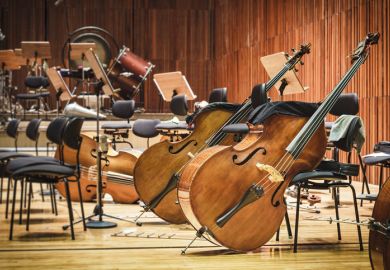Two remarkable recipients of the prestigious Order of the White Eagle, the highest honour awarded by Lech Walesa's Polish Republic, are the Pope and the composer Witold Lutoslawski (pronounced "Lootoswavski"). Such was Poland's recognition in 1993 of its most distinguished artistic and spiritual son who died in 1994 at the age of 81.
His worldwide reputation was enormous. In Britain alone he received honorary doctorates from the universities of Lancaster, Glasgow, Durham, Cambridge and Belfast, the fellowships of the Guildhall School of Music and the Royal Northern College, and Britain's highest musical award, the Gold Medal of the Royal Philharmonic Society. This last was presented to him by Sir Michael Tippett in 1986, the year the Huddersfield Contemporary Music Festival featured a major retrospective of his music.
Among all the high international honours and awards showered upon him, which included the equivalent of the Nobel prize from Japan in 1993, the Polish Republic's honour seemed to please the composer best, for he dearly loved what his country had now made of itself through all the political turmoil he had known since his earliest memories.
It is thanks to Charles Bodman Rae, composer, pianist and head of the School of Creative Studies at the City of Leeds College of Music - author of The Music of Lutoslawski - that so much is known about a very private composer and one who is certainly among the few great musicians of the 20th century.
Rae's book makes clear that Lutoslawski's memories of early life, family and friends, the political execution of his father and the constantly changing face of Central Europe were painful. Of his past life he gave away very little, but from the friendship that grew between him and Rae over his last 12 years, much can now be brought to light that supports a deeper understanding of this meticulous architect of some of the most monumental concert pieces of the past 30 years.
Rae has long had a close association with Poland and its music. After leaving Cambridge he spent two years in Warsaw on a Polish government scholarship as a composer. During this time his friendship with Lutoslawski grew out of an enthusiastic admiration for his work which existed long before their first meeting. Lutoslawski did not teach, but agreed to discuss Rae's work on a private basis, yet it was the younger composer's extremely perceptive understanding of Lutoslawski's own development and working processes that soon became the focus of their long conversations.
On his return from Poland in 1983 Rae joined the staff of the Leeds College of Music and began the planning of a book which would present detailed and accessible analyses of all Lutoslawksi's works set against a background of life and musical development. Links with Poland were then further consolidated with Rae's marriage to the Polish actress Dorota Kwiatikoska, whose help in completing this task of a decade has been immense.
Though the book's focus is the music, we are constantly reminded of details that emerged from the conversations that took place between writer and composer, and these frequently bring structural and harmonic analysis down to earth, placing music in the context of a practical world of which Lutoslawski was constantly aware.
Rae's book was in the press at the time of Lutoslawski's death, and had gained his full approval. It is a perceptive and well written account of the work of one of the most accessible voices of 20th-century music.
Patric Standford was formerly head of music, Leeds University College, Bretton Hall.
The Music of Lutoslawski
Author - Charles Bodman
ISBN - 0 571 16450 1
Publisher - Faber and Faber
Price - £25.00
Pages - 301
Register to continue
Why register?
- Registration is free and only takes a moment
- Once registered, you can read 3 articles a month
- Sign up for our newsletter
Subscribe
Or subscribe for unlimited access to:
- Unlimited access to news, views, insights & reviews
- Digital editions
- Digital access to THE’s university and college rankings analysis
Already registered or a current subscriber?



